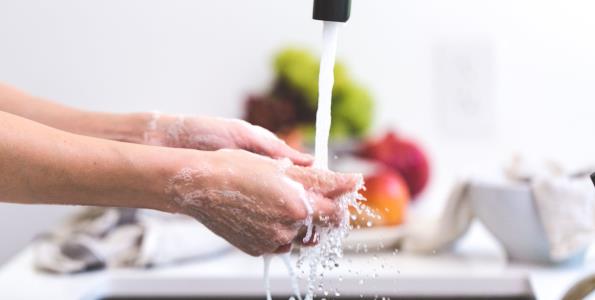Our bodies are amazing! Seriously, they are miraculous. No computer could ever rival the innate wisdom of our bodies. I think the more we know about how our bodies work, the better equipped we are to defend ourselves from disease. After all, the health of our bodies is down to us, the choices we make and the care we take of it. It’s not a car, we can’t take it to a mechanic to be fixed.
We talk about the immune system, but have you ever stopped to consider what it is? It is an incredible structure made up of a complex network of cells and organs that defend the body against infection.
The main parts of the immune system are
– white blood cells -antibodies
– the complement system
– the lymphatic system
– spleen
– bone marrow
– thymus
It’s funny, because whilst we can hear and feel the beating of our heart and therefore know it’s working, the immune system, is silent. But even though we are much less aware of our immune system, it is at work 24/7 protecting us from thousands of potentially deadly attacks every day.
There are two different parts to the immune system: innate & acquired.
Our innate immune system is what we are born with. It includes:
– physical barriers such as the skin
– chemical barriers such as antimicrobial proteins that harm or destroy invaders, and
– cells that attack foreign cells and body cells harboring infectious agents.
There are many mechanisms and cells by which chemicals work to harm or destroy invaders. These processes are too complex to convey in a blog, just know that they are continually on the lookout for foreign invaders and ready to strike at any time.
The second line of defense is called acquired immunity.
Acquired is named as such because you are not born with this form of immunity; it is acquired through exposure to pathogens.
This line of defense is acquired from:
– exposure to an infection or disease
– another person’s antibodies
It is well-established that persons who contract certain diseases and survive generally do not catch those illnesses again. This is made possible through the mechanisms of acquired immunity. When your immune system is exposed to a pathogen, it learns to recognize it and can make your immune system better equipped to fight off that type of germ the next time you’re exposed to it. This is why it’s super important to not live in a too sterile environment and be germ-phobic.
It all starts with the skin, our largest organ.
Our Integumentary System, made up of our skin, hair, and nails, are responsible for preventing germs from entering our body.
Our skin protects us on 3 levels:
1. The pH of the top layer of skin, controlled by the oil glands, can kill bacteria on the spot.
2. The physical boundary of skin cells keeps the outside world out and our insides in.
3. The layer of mucous membrane that lines our skin flushes toxins that get caught in the mucous cells down into the digestive system where they are broken down by the gut flora.
How can we support the Integumentary System?
Strengthening the integumentary system comes down to one simple practice: hygiene.
What has been considered to be hygienic standards have changed over the years and changes from country to country and even family to family. As a society we’ve gone from “dirt won’t hurt,” to pocket hand sanitizers. Antibacterial hand soap and wipes seem like a relatively good idea. But are they?The issue is that they work in the same way that antibiotics work in our gut – taking out all the good guys, as well as the bad guys.
This creates a syndrome called “dysbiosis,” which is just the fancy way to say that the ecosystem of our body is off-kilter. When our healthy bacteria is wiped out, our skin is left defenseless and germs of all kinds have access to our body through our pores.
So how can we stay clean without wiping out our first line of defense?
There are more than 150 species of good bacteria on our hands alone. Since our hands come into contact with various infected surfaces throughout the day, we have to do something to stop us from getting those germs from our hands to our mouths.
The answer is incredibly simple. Wash your hands with regular soap and, NOT the antibacterial kind. According to the U.S. Food and Drug Administration (FDA), there isn’t enough evidence to support that antibacterial soaps are actually more effective than regular soap and water! Ideally when we wash our hands we don’t want to be annihilating all of the bacteria, which in turn weakens our immune system, we want to be removing the bad bacteria and leaving the good. (Of course the one-off times don’t matter, it’s what we are doing on a daily basis that accumulates.)
What I do
I don’t use synthetic ingredients on my skin. Man-made chemicals, such as triclosan, create complete annihilation of the good and the bad bacteria. That isn’t what I want. Instead I use simple ingredients combined with essential oils which are naturally anti-bacterial, anti-fungal and anti-viral. Being plant based rather than man made they work in synergy with the body and not alter the delicate PH of the skin, helping the skin to to what it is there to do, act as a gate-keeper to stop germs entering in.
There are many more ways that we can naturally support the immune system. Join my next class on WEDNESDAY 17TH JUNE AT 8 PM: CREATING RESILIENCE to learn more. REGISTER HERE

